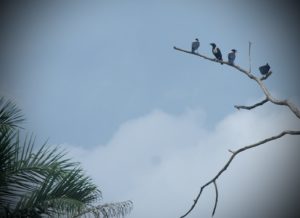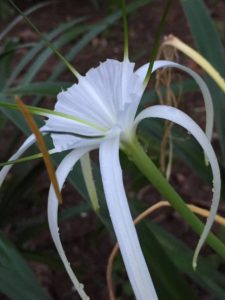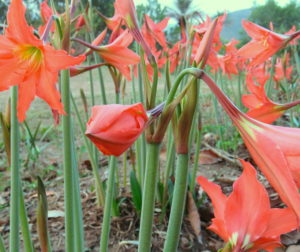Consider
Consider
Consider the ravens: for they neither sow nor reap; which neither have storehouse nor barn; and God feedeth them… Consider the lilies how they grow: they toil not, they spin not; and yet I say unto you, that Solomon in all his glory was not arrayed like one of these. Luke 12:24,27
Jesus often taught in parables, as seen in Matthew 13:13, “Therefore speak I to them in parables: because they seeing see not; and hearing they hear not, neither do they understand.” This was to separate those who desired to learn from those who were just there for the fanfare and miracles.
Heart-sight, the wonderful ability to not simply see with the eyes, but rather to deeply perceive the underneath of spiritual things represented in the material world. To see with heart-sight is to see that the whole earth truly is full of His glory (Isaiah 6:3).
When Jesus is telling His disciples to consider some things commonly seen, and probably even ignored, He’s urging them to perceive with heart-sight the spiritual lesson contained in the material. Let’s delve into this word, consider, to see the rich depth of its meaning.
- To view attentively
- To view with careful examination
- To ponder, study, and meditate on
- To think seriously, maturely, and carefully
- To reflect or turn in the mind
- To examine the subject with a view to truth
To examine the subject with a view to truth! Jesus is pointing to the physical elements of the natural world to teach a spiritual truth. He’s telling us to fix our hearts and minds on what is right in front of us, to see a little deeper, to think a little longer, to examine with carefulness, to sit close by and actually perceive the spiritual truths contained in His very good creation.
In its literal sense the word consider means to sit close by and set the mind to, hence a “See-Sit,” a term which appears to be no longer in use. This quaint expression, part of the definition from the Webster 1828 dictionary, would have just been part of the vernacular at that time. The 1700 — 1800s was an incredible time of great exploration, with many discoveries made in the natural world. For even the common man, the regular observation of nature became a prominent part of the cultures on both sides of the Atlantic, through journaling and sketching, widely influencing much study of ornithology (birds) and botany (plants). The very subjects that Jesus has here bid us to consider.
I need to remember to slow down, take my attention off the busyness of life, and enjoy a good, long “See-Sit,” a practice in which I used to regularly partake (without knowing that lovely term!). In fact, many of my blog posts are the results of just such times and I will link a few of them below. Then, I encourage you to go read with heart-sight and consider the lessons contained in God’s creation. They are there in abundance.
A few of my previous blog posts which came as the result of “See-Sits” in Sierra Leone.
True Fire — https://gatherthefragments.com/true-fire/
Lessons from the Honey Bee — https://gatherthefragments.com/lessons-from-the-honey-bee/
Wings of Faith — https://gatherthefragments.com/wings-of-faith/
As a Sparrow Alone — https://gatherthefragments.com/as-a-sparrow-alone/
Revealed by Fire — https://gatherthefragments.com/revealed-by-fire/
Lessons from a Haulback — https://gatherthefragments.com/lessons-from-a-haulback/








Thank you for sharing this beautiful lesson! I do need to make time to sit and consider. Praise the Lord – all creation truly does sing His praise!